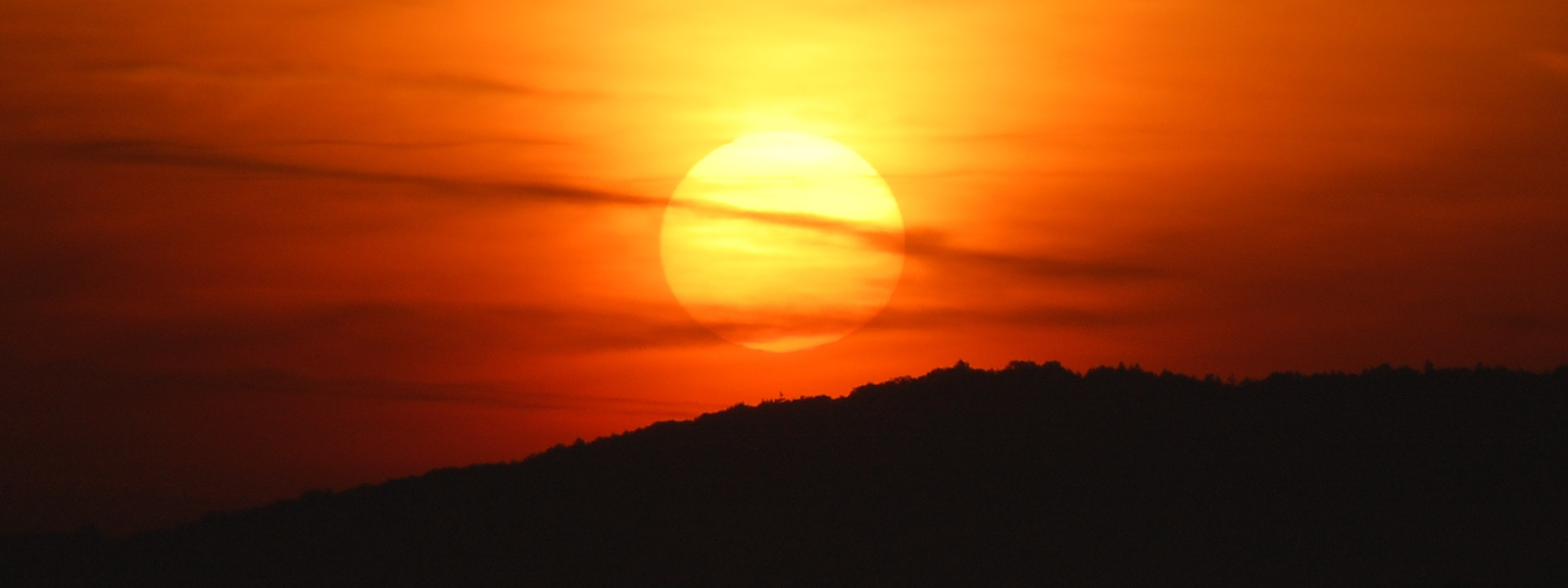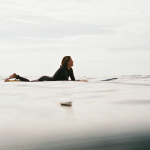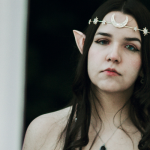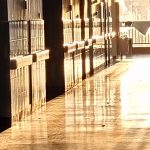Ice and a snow weren’t the best material for the task, but Jason didn’t have much else to work with. He could cobble something together from the shattered concrete and rubble around the stadium, but it seemed like so much work, and he was so tired. Ice and snow would do.
He used an icicle from the underside of the bleachers as the spine for his first creation, anchoring it to the concrete with packed snow. He clumped and compacted more snow around it until he had a rough, human-shaped form about five feet tall. Jason took the sapphires he’d found in the burnt-out wreck of a jewelry store from his pocket and pushed them into the ice person’s head.
“Julie,” he said. Her blue eyes had gleamed like sapphires when he proposed, like a sky he hardly remembered.
Julie sat in a shallow bowl of concrete that looked down on a patch of mud and weeds that might have been a football field before the bombs fell. Once attached to a high school, the stadium had somehow survived the destruction of the school and most of the town around it. Its bleachers were the kind that made your ass sore ten minutes after you sat down, and it looked like they might seat a couple hundred people. He only needed three.
The sun shone down on his work, wan and feeble through thick yellow clouds, offering only a dim and painful reminder of warmth. He’d looked upon the same cancerous sky for two wretched years of endless winter and hunger.
It would be dark soon, and Jason wanted to finish in what little daylight remained. He broke another icicle free, smaller this time, and set it next to Julie. He piled snow around it, his breath steaming over the form taking shape. He imagined breathing what little life remained to him in to the stiff, frozen figure. A ridiculous notion, but he found some satisfaction in the idea it might contain some piece of him, some molecule of his essence.
The second ice person was tiny, child-sized. He fumbled at the pocket of his coat for the last piece he needed. The snow had soaked his woolen gloves, and his fingers felt like pieces of wood. Frostbite. He pulled out a picture he’d cut from a magazine, a smiling baby boy, maybe six months old, on a blanket with his parents. They sat on manicured lawn in a world that no longer existed.
“I always liked the name Robert,” he said, recalling the first time they talked about names, Julie cradling her round belly, her face glowing with joy and irritation in equal measure. “But I know you wanted Jason because I’m a junior, and that would make our son a third, like royalty. I’m sorry I argued with you.”
He folded up the picture of the baby and its parents and pushed it into the second ice-person’s chest. “Jason,” he said, “the Third.”
The sun sank lower in the sky and the temperature dropped. Nuclear winter was a bitch, and he doubted the temperature had risen above freezing since he left San Diego two years ago. He shivered hard, and the cold reached through his coats with jagged fingers, squeezing the warmth from his core. Usually, by this late in the day, he’d huddle up next to a fire made with whatever burnable trash he could find. He was done with that. The world had died, succumbed to cold and dread. What point was there holding off the inevitable any longer?
Jason released a long shaking breath and sat down next to his family. The snow had collected in tall mounds between the concrete seats, and he pulled it over himself like a frigid gray blanket. He covered his lap, laid back, and piled more snow on his chest, letting the cold seep into him. His shivers became a wracking whole-body thing, but that would pass.
He knew his wife and son beside him were only simulacra. Their bones lay in the mass grave that used to be Los Angeles, their ashes mingled with the incinerated remains of countless millions. These bodies, shaped from the bitter remains of a dead world, were a statement of life, however fleeting. They brought him some comfort, though closure might be a better word.
He was not religious, and he had no delusions about seeing his family beyond the darkness. It was enough that no one would have to watch the sun rise over an empty world again.
He stopped shivering. The violent quaking of his chilled body gave way to languid warmth that started at his head and flowed down his limbs. Jason’s eyelids grew heavy, and before long he couldn’t move his arms and legs. He turned his head back to a sulfurous yellow glow on the horizon.
He watched the sun set one last time and welcomed the darkness like an old friend, like family.
…
Biography
Aeryn Rudel is a freelance writer from Seattle, Washington. His second novel, Aftershock, was recently published by Privateer Press. Aeryn occasionally offers dubious advice on the subjects of writing and rejection (mostly rejection) on his blog at www.rejectomancy.com or on Twitter @Aeryn_Rudel.
Image: Christian Puta





